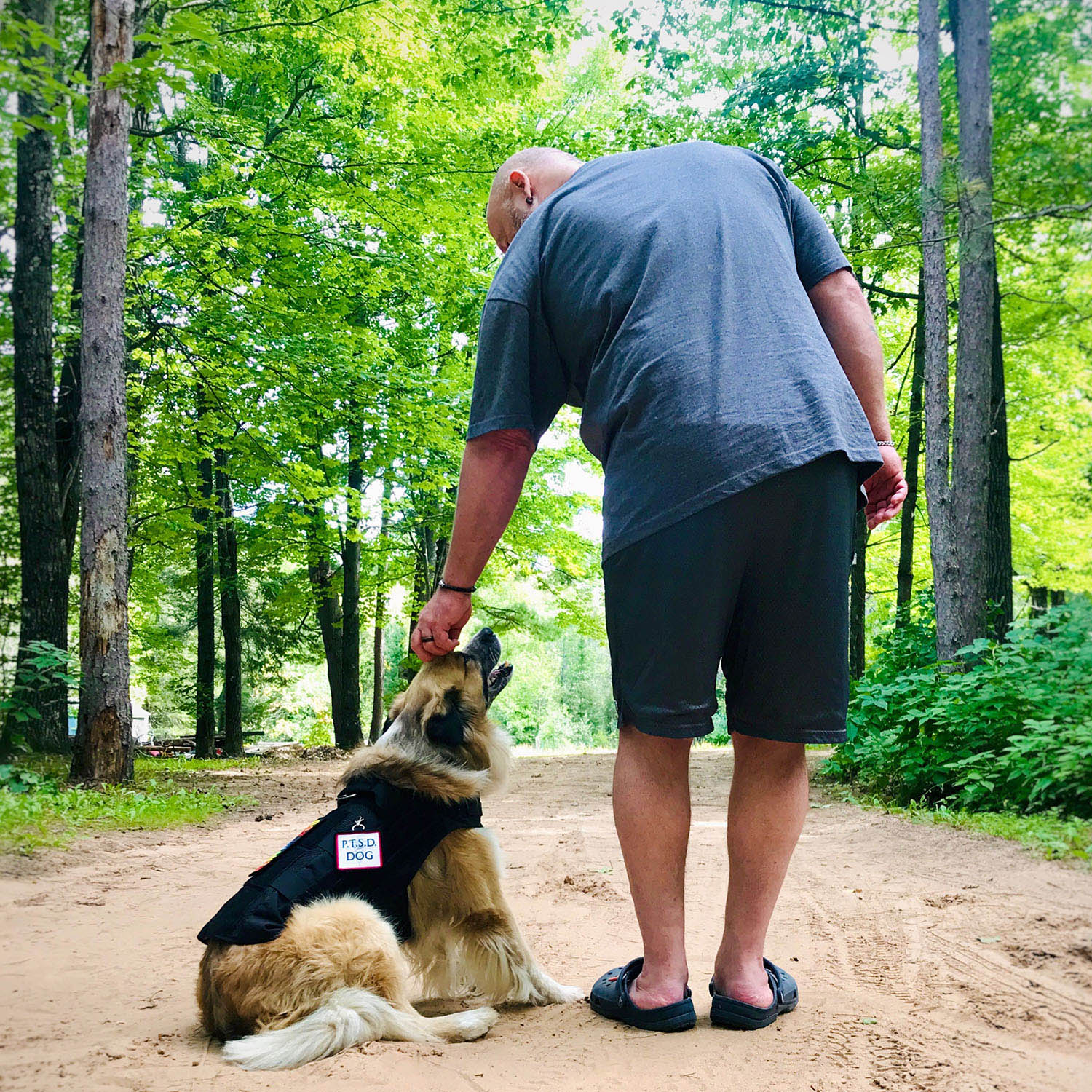Service Dog Partnerships May Benefit Military Members and Veterans With Post-Traumatic Stress Disorder

A new study suggests that partnering with a trained psychiatric service dog helps lower the severity of post-traumatic stress disorder (PTSD) symptoms, anxiety, and depression in adults with military-related PTSD. The study, which was recently published in JAMA Network Open, was led by scientists from the University of Arizona, Indiana University School of Medicine, and Roudebush Veterans Affairs Medical Center. The National Center for Complementary and Integrative Health partially funded the research.
PTSD is a critical concern among members of the military and veterans. Associated with other conditions, including major depression and generalized anxiety disorder, PTSD remains difficult to treat. Although current evidence-based treatments are effective for some people, treatment uptake and retention have been limited.
A small amount of prior research suggests that partnering with service dogs—dogs that are individually trained to do work or perform tasks for people with disabilities—is associated with meaningful improvements in self-reported symptoms among veterans with PTSD. The research up until now, however, has not compared the use of service dogs to usual care alone and has not employed blinded (masked) clinician ratings to evaluate PTSD severity.
For this nonrandomized study, 156 military members and veterans diagnosed with PTSD were recruited through K9s For Warriors, a U.S. nonprofit service dog provider. All participants applied for a service dog through this organization. Based on when participants applied, 81 were assigned to receive a service dog and undergo training, and 75 were assigned to remain on the waitlist for a service dog. Both groups had unrestricted access to usual care for PTSD.
At the start of the study and after 3 months, participants were evaluated by standardized self-report measures, which were corroborated by clinician assessment. Compared to the waitlisted group, participants partnered with service dogs had significantly lower self-reported and clinician-rated PTSD severity, significantly lower anxiety and depression, and significantly higher quality of life. They also experienced lower isolation and higher companionship, but they partook in fewer social activities compared to the control group.
Overall, the findings from the study support the use of service dog partnerships in combination with other evidence-based care for PTSD. Also, the dropout rate in this study was substantially lower than that seen for both trauma-focused treatments and non-trauma–focused treatments, suggesting service dog partnership may be a promising complementary intervention for military-related PTSD. Going forward, the authors said it will be important to study the combination of a service dog intervention with an evidence-based PTSD intervention, as the combination might help to retain people in the evidence-based PTSD intervention.
Reference
- Leighton SC, Rodriguez KE, Jensen CL, et al. Service dogs for veterans and military members with posttraumatic stress disorder: a nonrandomized controlled trial. JAMA Network Open. June 4, 2024. [ePub ahead of print.]
Additional Resources
Publication Date: June 4, 2024